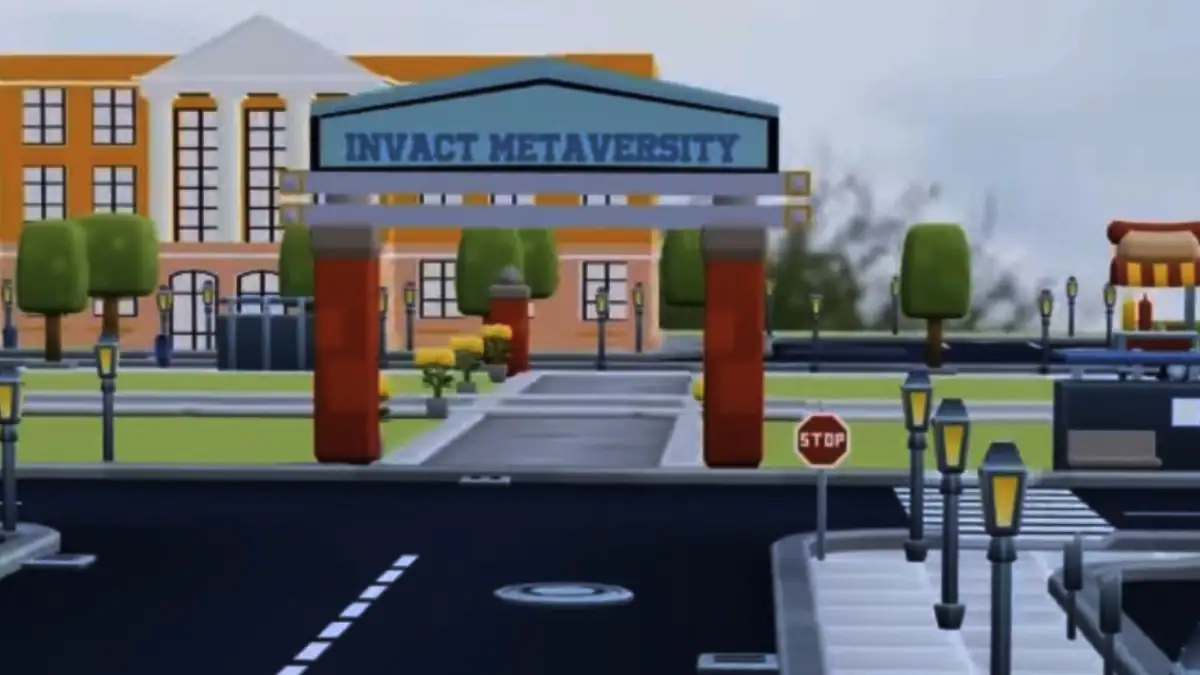Solution to India’s Education-Strangling Issues Lies in Metaverse Tech: Manish Maheshwari
Two years since the Coronavirus pandemic initiated the disruption of life as we knew it, millions of students from around the world are still grappling with education crisis that bent into a downward curve in 2020. As per the UNICEF, 76 percent of Indian students faced learning losses due to the pandemic after schools and colleges shut down for a bit and resumed with an online working structure. Manish Maheshwari, the former head of Twitter India, has called the metaverse technology a solution to combat the education crisis in India and around the world.
Maheshwari quit Twitter in 2021 and jumped into developing a promising Web3 project — Invact Metaversity. The aim of this project is to establish a university in the virtual world, where students from India and around the world can come together for educational and training courses. The developers are currently transfixed to the tagline “Campus from Couch” for this project.
Keeping it India-centric, Maheshwari’s Metaversity will be able to operate on 3G internet, which spans across India now that the country stands at the cusp of stepping into the 5G territory. Without having to invest in expensive hardware, people will be able to access this Metaversity through their Internet browsers.
“The aim is to democratise education. We realised that a 3D environment for learning could capture the attention of this generation that spends hours on screen, connecting with strangers in virtual gaming world. COVID-19 shut down schools, limiting the access to immersive education. Attending classes via Zoom calls or YouTube did not turn out to be a good experience for everyone,” the former Twitter India chief told Gadgets 360.
Introducing your mentor for the Social Media Marketing module of the metaMBA program.
Kushagra Tyagi, Platform Specialist at Apple, Ex-Twitter.
Get a chance to excel at Social Media Marketing with him at Invact Metaversity.Limited seats are available.
Apply now:rocket:, link in bio. pic.twitter.com/kNMgYlhUqm— Invact Metaversity (@invactHQ) April 4, 2022
The makers of the virtual university are using a technology called Web VR that eliminates the requirement of any Virtual Reality (VR)-headset to access the metaverse.
As per a McKinsey’s report, the global loss in learning during the COVID-19 times could lead to annual losses of $1.6 trillion (roughly Rs. 1,22,33,440 crore) worldwide by 2040. That would be around a significant one percent of the global GDP.
While we have already seen embassies, restaurants, banks, and crypto exchange offices establishing virtual headquarters in the metaverse, not a lot of educational institutions have made such a move.
Diving deeper into the future of the edtech industry, Maheshwari plans to stay ahead of the contemporaries.
The first batch of this digital university has already started with their classes.
Students taking admissions in the Invact Metaversity will be able to turn their assignments and projects into non-fungible tokens (NFTs). This will allow them to have sole ownership of their work and leave them an option to sell their respective NFTs for bigger gains anytime later.
“As we have students come to the classroom and they start producing proof-of-work. Yeah, we can put it on the chain. And we can link it to the identity so that they have a virtual ownership of all the assignment. In the virtual world, you don’t have ownership of your work, anybody can copy it. But with NFTs, whatever assignments you will do, whatever project, whatever degrees you get with whatever credentials, can be linked to your identity and owned by you, because you’ll put it on the chain and then it will be publicly verifiable,” Maheshwari explained.
This will reduce people’s dependence on their Google, LinkedIn, or Twitter profiles.
Earlier this year, Invact Metaversity raised $5 million (roughly Rs. 40 crores) in a seed-funding round. Antler India invested in the project alongside other global firms such as Picus Capital, M Venture Partners, and BECO Capital. In addition, over 70 angel investors are linked to this Metaversity vision.
These investors have also identified that not every country has enough useable real estate or the finances to establish physical student campuses, all of which can come close to being compensated for, in an interactive and engageable virtual universe.
These industry players have also been roped-in to interact with students and guide them with their courses in the metaverse.
The Invact team is creating proprietary content to leverage the 3D immersive nature of the classroom.
The officials are also getting in touch with education content creators that are currently using YouTube to get a formal training with Invact and begin teaching in its Metaversity.
As of now, Maheshwari is not looking to adjoin his metaverse university with any physical colleges for accreditation or any other purpose.
“Many of these educational institutes want to partner with us, but we don’t see any value in that because if they added value, we would not have been making this metaversity. Degree is not the problem, unemployability is. Less that 10 percent of graduates in India end up getting the jobs they deserve because of lack of industrial training. That’s what we are aiming at with our projects. These industry experts will not only teach students, but will also train them for this fast-growing start-up, product management, and design-oriented work system,” he noted.
Analysts expect an explosion of new-age entrepreneurs in the coming times, who will benefit from distributed computing and distributed ownership elements that blockchain technology offers, unlike large corporations.
“The metaverse can open education to people from all age-groups, orientations, geographies, and cultures. Everybody will be able to get education from the comfort of their houses,” Maheshwari concluded, while calling out to other budding entrepreneurs to use their technical skills to solve social issues of the 21st century.
Meanwhile, research reports expect the market opportunity for the metaverse to reach $800 billion (roughly Rs. 59,58,719 crore) by 2024.
Check out our Latest News and Follow us at Facebook
Original Source







